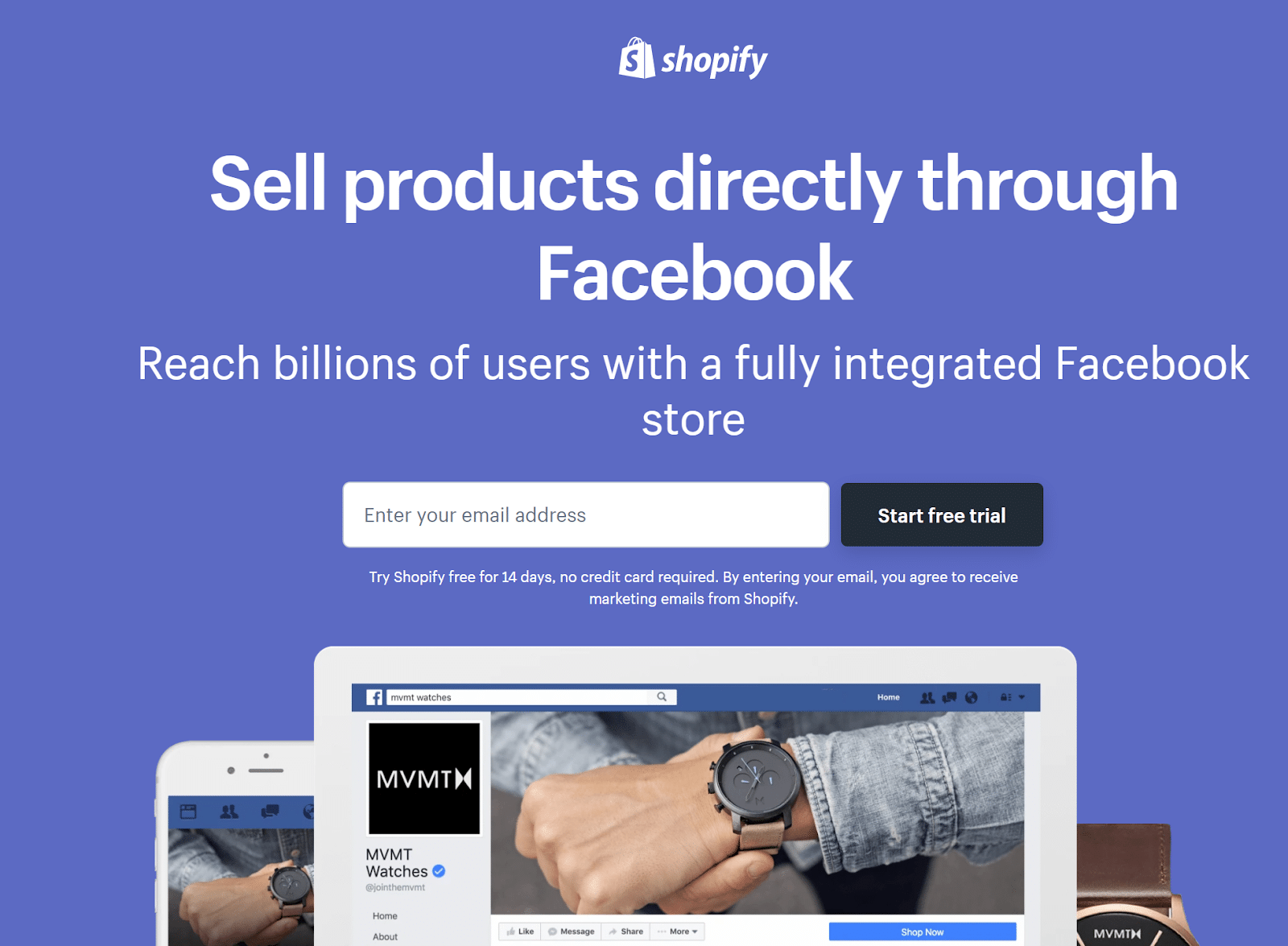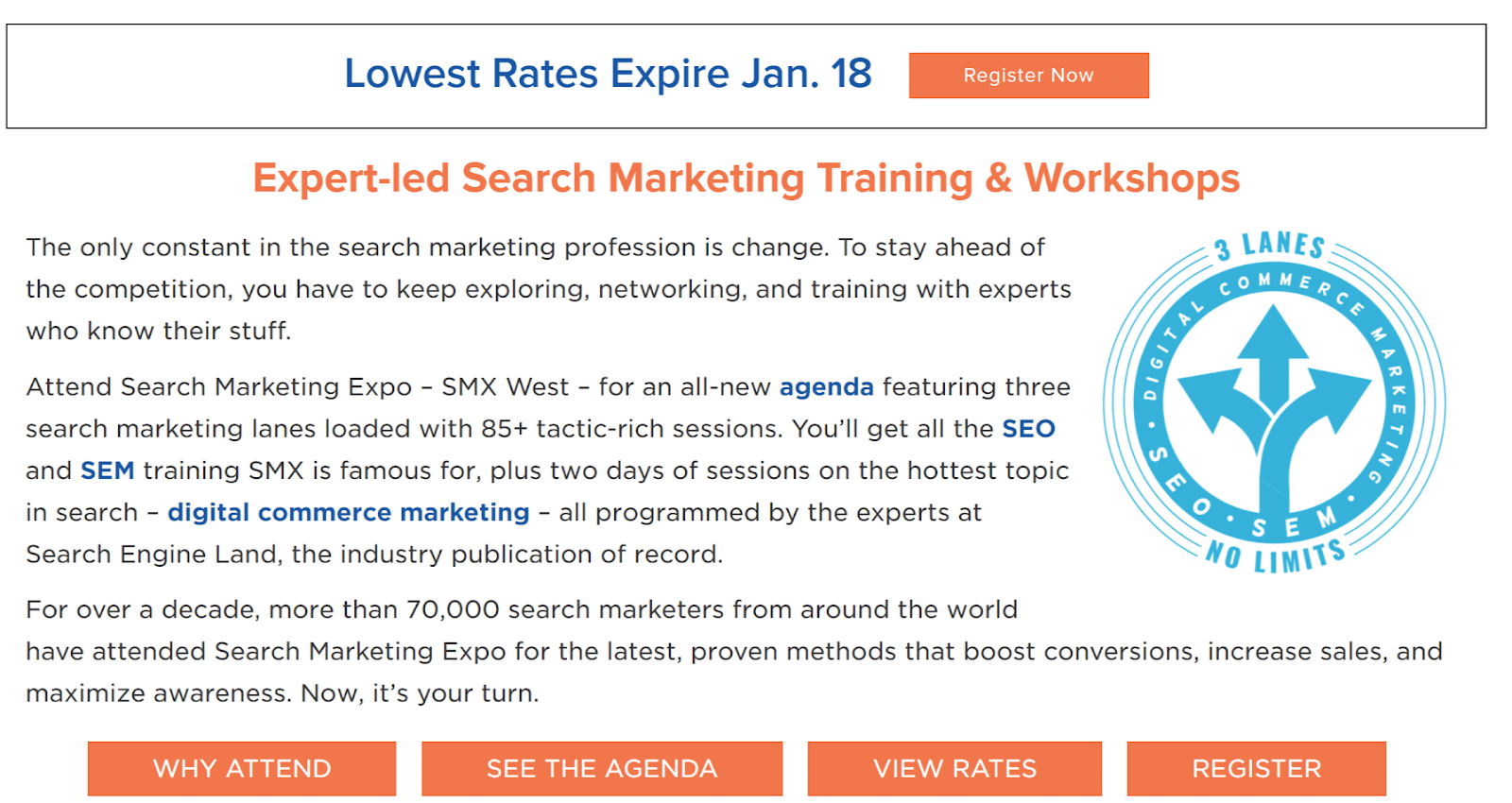What is a Landing Page?
If you’re looking for a single fix for your website to improve conversions and make your marketing more effective, creating a landing page is it. But what is a landing page, and how exactly does it work in digital marketing?
This guide will improve your understanding of landing pages by showing how landing pages in marketing work and how you can use them to generate leads and sales.
What is a Landing Page and How Does it Work?
A landing page is a single web page created as a destination for a specific marketing or advertising campaign. It’s called a landing page because visitors land on the page after clicking a link in your ad or marketing campaign. As well as using landing pages as ad targets, you can share links to them on social media, add them to videos, and include them in email or other marketing campaigns.
Landing pages aren’t like other pages on your website. Many of the pages on your site, such as the homepage, encourage visitors to explore your site further, and go deeper into its content.
In contrast, landing pages focus on encouraging website visitors to stay where they are, and take a single, specific action. Landing pages include a call to action (CTA), which is a text link or button, telling visitors what action to take.
Homepage vs. Landing Page
| Homepage | Landing Page | |
| Objective | Direct visitor to relevant content | Deliver request content |
| Visitor intent | Broad range | Specific |
| Traffic sources | Varied | Specific Campaign |
| Navigation | Full range of options | None (or minimal) |
| Content | Overall business category and positioning copy | Specific to benefits of the desired action |
| Desired action | Draw visitor deeper into the website | Click a single call to action (CTA) |
When visitors follow a campaign to a landing page, click on the CTA and take the desired action, this is a ‘conversion.’ Because standalone landing pages have a singular focus, the best landing page examples excel at increasing conversions and reducing the cost per acquisition of leads and sales.
There are several types of landing pages, including squeeze pages, splash pages, lead capture pages, and sales pages. Each page type serves a different marketing goal, and you should explore different types of landing pages depending on your campaign’s goal.
The next section looks at landing page marketing in more detail, and answers some more key questions about landing pages.
What is the Main Purpose of a Landing Page?
The main purpose of a landing page is to encourage visitors to take action. This action is usually related to lead generation or sales. You can use a landing page, for example, to encourage people to sign up for your webinar, grab a free trial, or download an ebook.
What Is the Difference Between a Sales Page and a Landing Page?
Both sales pages and lead-generation landing pages are destinations for marketing and advertising campaigns. a sales landing pages often has multiple calls to action, whereas a (well built) landing page will have just one.
Post-click sales pages and standalone landing pages both have a short piece of copy designed to inspire action, such as in this example from Shopify:

But there are also long-form sales pages. These can include multiple calls to action, rather than a focus on just one.
See the example below:

How Many Landing Pages Should You Have?
Research shows that websites that have ten to fifteen landing pages get a 55% boost in conversions when compared with those with fewer than ten landing pages. There’s also a 500% boost in conversions for sites with more than 40 landing pages. So, it makes sense to create individual landing pages for each marketing and advertising campaign.
If you’re following landing page best practices, note that mobile landing pages often work differently from those targeted at desktop users. That’s why it always makes sense to build unique landing pages for mobile campaigns.
Where to Put Your Landing Page: Do I Need a Website?
While many people host their landing pages on their own website, it’s not necessary to have a website for your landing page. You can create landing pages via landing page tools such as Instapage.
Many email service providers also include landing page creation offerings. Read Taboola’s guide to learn how to design a great landing page that will achieve high conversions.
Conclusion
This guide has helped you to understand landing pages by answering key questions about what they are and how they work. Here’s a quick recap:
- Landing pages are destinations for marketing or advertising campaigns, helping businesses to generate leads or sales
- Each landing page focuses on a single call to action
- You don’t need your own website to create a landing page
- Since you need a different landing page for each campaign, it’s fine to have multiple landing pages
Next, see how Taboola can help you drive traffic to your landing pages to meet your business goals.
Further Reading
- The Best Landing Page Statistics to Guide Your Conversion Optimization Strategy
- Check Out the Tactics These Fab Product Landing Pages Employ to Boost Conversion
- Landing Page Optimization Tips – How to Improve Performance Across the Board?
- How to Write Landing Page Content: Examples & Strategies
- The Complete Guide to the Landing Page A/B Testing
- The 7 Tips to Create Best Real Estate Landing Pages